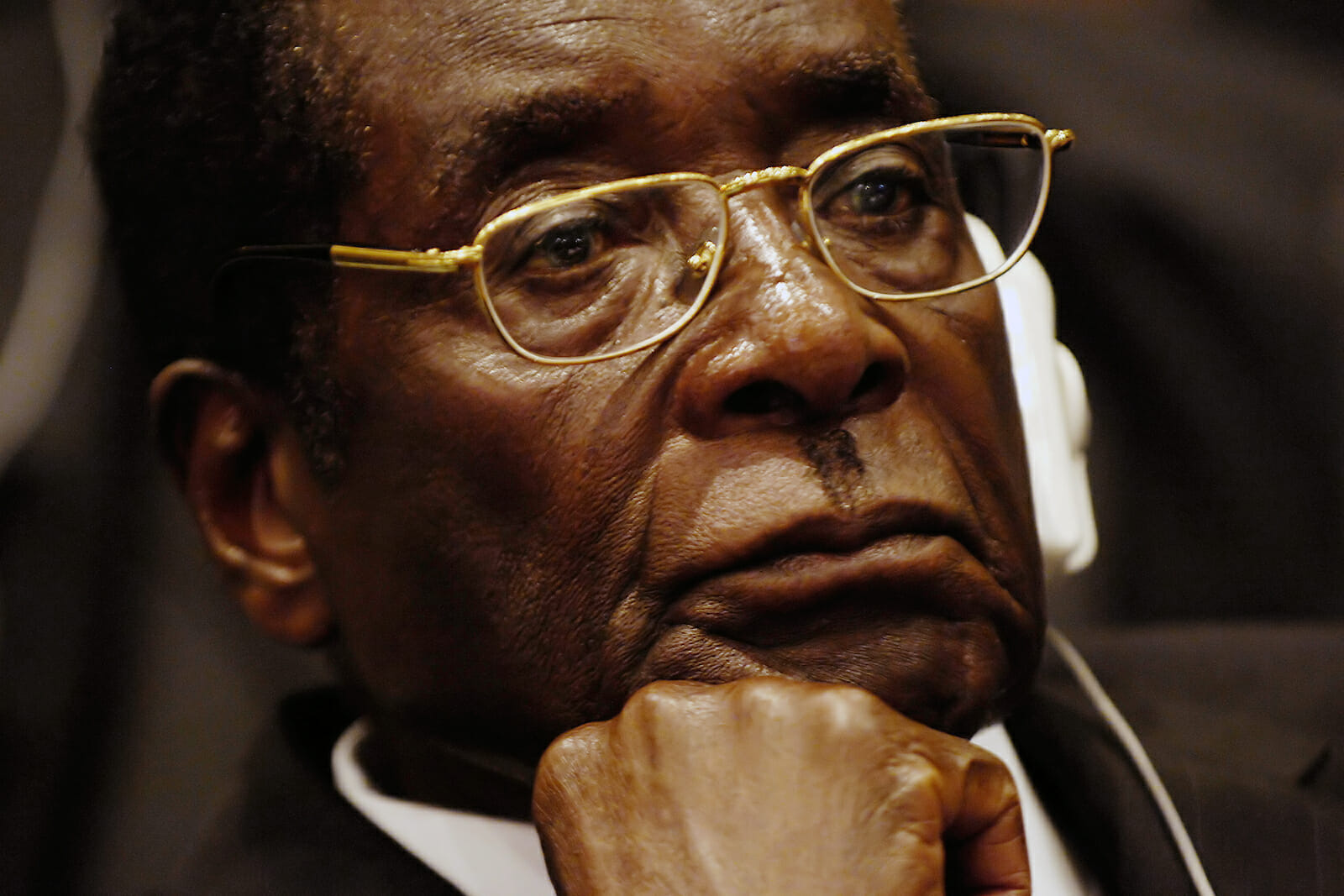
U.S. Must Tread Carefully in Zimbabwe
Council of Foreign Relations senior fellow Ambassador John Campbell recently released a policy innovation memorandum entitled, “Zimbabwe: An Opportunity for Closer U.S.-South Africa Relations.” It is heartening to see analysts writing on topics they perceive as beneficial to closer relations between the United States and South Africa.
Campbell, a former U.S. Ambassador to Nigeria, makes a number of valid points, and in principle, the tone of his brief is correct. Both sides want an end to the political crisis. His main argument is the upcoming elections create an opportunity for Washington and Pretoria to forge a partnership on Zimbabwe that if successful could improve the overall tone of the US-South Africa relationship. However, from the South African perspective, there are a number of key components that the memorandum fails to accurately capture.
Firstly, one can strongly argue the South African population is not “favorably disposed toward the United States and especially President Barack Obama,” as described by Campbell. This is a delicate issue that unfortunately cannot be elaborated further here due to length constraints, but in terms of Zimbabwe, it is important to examine recent history in order to grasp this fact.
Various comments were made by both the U.S. and South Africa in the run-up to Zimbabwe’s 2002 presidential elections. ANC rhetorical support for ZANU-PF began to grow, as did the condemnation of the British and the U.S. Prior to South African president Thabo Mbeki’s meeting of Commonwealth leaders in London in March 2002, ANC secretary general at the time, Kgalema Motlanthe, accused the U.S. and the UK of destabilizing Zimbabwe. He noted: “If it is possible for Tony Blair to say elections can only be free and fair if one party wins, then they can do the same here.”
The next five years (2003-2008) saw Zimbabwe become a crucial constant negative in U.S.-South Africa relations, eventually leading to even more very public shouting matches between the two countries. After Chinese and Russian votes at the United Nations Security Council on Zimbabwe in 2008, Zalmay Khalilzad, U.S. ambassador to the U.N., “lambasted” South Africa as the main culprit in the failed Anglo-American bid to punish Mugabe and his top cronies with sanctions on their travel, finances and arms supplies. Khalilzad told reporters: “I want to say a word or two about the performance of South Africa…It was particularly disturbing given the history of South Africa…where international sanctions played an important role in encouraging transformation [from apartheid] for its representative to be protecting the horrible regime in Zimbabwe.”
Although not beneficial to overall U.S.-South Africa relations, these public quarrels were positive in that it showed South Africa was distant from the U.S., a country perceived as imperialist and arrogant by some within the ANC ranks and most within ZANU-PF. There is this perception in both countries, South Africa and Zimbabwe, that their American counterparts do not fully understand the complexities of Southern African political dynamics, and they firmly reject their interventionist ways. By South Africa appearing anti-US, it, in turn, helped the country appear as an honest “African” broker.
Mbeki understood this as well: SADC members see Zimbabwe as a member of the Southern African community and not a colony of the West, especially the U.S. With this in mind, Mbeki frequently called on the U.S. to support him in his efforts but not to go above him, which America did by introducing a draft resolution in the UNSC proposing sanctions. In the end, it led to Mbeki addressing a personal four-page letter to U.S. President George W. Bush in April 2008 criticising America in a text filled with exclamation points stating America should ‘butt out’ of Zimbabwe.
Since Mbeki’s departure, current South African president Jacob Zuma has taken over as SADC facilitator adopting a tougher stance on Zimbabwe reflecting South Africa’s exasperation by the lack of adherence to and progress on the GPA. This did bring about a positive change in the dynamic between US-South Africa relations but has not yet translated into a resolution of the Zimbabwe governance crisis specifically. This new stance has cooled relations between Zuma and President Robert Mugabe due to Zuma’s pressure on him. There is also some animosity because South Africa refused to support Zimbabwe’s bid to join the U.N. Human Rights Commission in 2009.
Given the history and the current lukewarm Zuma-Mugabe relationship, press releases of close U.S.-South African ties and mutual admiration in the media over the coming months will only strengthen ZANU. It will lead to more anti-imperialist rhetoric, which some Zimbabweans might undoubtedly agree with, thereby cementing the reins of the ruling political party. Furthermore, South Africa and others in the region know that a strong and public anti-Mugabe stance by America only serves to make Mugabe and ZANU-PF more defensive and antagonistic. Many within the ANC still share the same view that was presented on 23 June 2008 just prior to the Zimbabwean run-off election and after a media report of possible British involvement when the ANC wrote, “A lasting solution has to be led by the Zimbabweans and any attempts by outside players to impose regime change will merely deepen the crisis.” Therefore, a perceived united U.S.-Zuma stance would not be beneficial to the current South African president.
Ambassador Campbell is right in some respects. Washington and Pretoria can and will work together on Zimbabwe, like in the past, despite anti-American undertones. However, it will be beneficial for all if the U.S. sits on the sidelines and quietly supports the wishes of the SADC countries. Public statements supporting South Africa’s leadership should be kept to a minimum, and U.S.-South Africa meetings should be kept as quiet as possible in order to keep the fuel away from the fire. If South Africa is indeed serious about curing Zimbabwe’s ills, and Mugabe does not abide by the regional organisation’s wishes, it should be South Africa and South Africa alone that steps up and persuades SADC that enough is enough.
